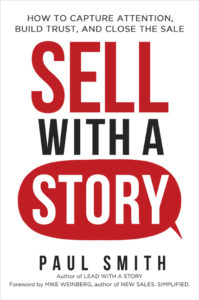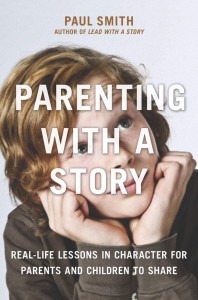Podcast: Play in new window | Download | Embed
Subscribe: RSS
Podcast (parenting-with-a-story-podcast-series): Play in new window | Download | Embed
Subscribe: RSS
Natalia learned the painful consequences of not telling the truth at the tender age of three. But it wasn’t the sting of her father’s hand when she was caught that hurt. In fact, she never got caught at all. It turns out that cost her far more dearly than if she had.
Natalia was born and raised in a suburb of Moscow, Russia. Both her parents worked. So during the summer months when she was out of school, Natalia spent her days at her grandparents’ house. I’m not sure why young children are so fascinated with putting foreign objects in their nose. But they are. It seems to be a hobby for kids the world over. And three-year-old Natalia was among them.
 At some point that summer, she managed to lodge a single peanut an impressive distance up one of her nostrils. After a few unsuccessful attempts to remove it, Natalia knew she needed to tell her parents. But she also suspected she would get in trouble for it. So she did what most three-year-olds do when they’ve done something wrong. She blamed someone else.
At some point that summer, she managed to lodge a single peanut an impressive distance up one of her nostrils. After a few unsuccessful attempts to remove it, Natalia knew she needed to tell her parents. But she also suspected she would get in trouble for it. So she did what most three-year-olds do when they’ve done something wrong. She blamed someone else.
She made up an elaborate story about how the little girl who lived next door to her grandparents had actually shoved the peanut up her nose. But since the peanut wasn’t visible, even to the most probing of caring parental eyes, her parents assumed she had made up the entire story and quickly forgot about it.
Two months later, while Natalia was sleeping, perhaps with her head at just the right angle, her mother noticed something lodged deep in her nose. The peanut! A quick trip to the doctor’s office and a steady hand removed the peanut. But that’s where the real drama started. Now her parents realized that their daughter hadn’t made up the story about the peanut at all. That meant the part about the little girl next door being responsible was probably also true.
Natalia’s parents called her grandparents. Her grandparents then dutifully confronted the little girl and her parents. You can imagine the he-said-she-said arguments and accusations that followed. The little girl, of course, denied any such wrongdoing. And as you might expect, her parents staunchly defended her honor, while Natalia’s parents and grandparents stood firmly behind Natalia’s story.
The talks ended in a stalemate, with no official punishment handed out on either side. But the real consequence was this: The parents of the girl next door forbade their daughter from ever playing with Natalia again. After all, what parents would want their daughter playing with another child who had lied so brazenly about their little angel? Natalia lost that playmate, for the rest of that summer and every summer thereafter. In fact, it would be more than a decade before the two girls even spoke to each other.
Trying to avoid the disappointment of her parents, or perhaps even a spanking, seemed at the time to be a worthy reward for the lie she told. But if she had known the ultimate cost of that lie—losing a friend and playmate for the rest of her childhood—even a three-year-old might have made a different decision.
And that’s exactly the kind of thing an adult with decades of life experience knows that a three-year-old doesn’t — the possible long-term consequences of various actions, like lying. Which is exactly why stories like this are much more effective at teaching children not to lie than just being told that lying is wrong or that it can get you a spanking.
As with all these stories, I encourage you to share this with your kids, and then have a discussion about it. Here are some questions to get you started:
- What do you think would have happened to Natalia if she’d just told her parents the truth to begin with, that she put the peanut in her own nose?
- How do you think Natalia’s friend next door felt when she heard that Natalia had accused her of putting the peanut in her nose? How do you think her parents felt?
- Have you ever been tempted to blame something you did on someone else?
- Can you think of a situation where it might be appropriate to say something that isn’t true?
[You can find this and over 100 other character-building stories in my book, Parenting with a Story.]
—
 Paul Smith is one of the world’s leading experts on business storytelling. He’s a keynote speaker, storytelling coach, and bestselling author of the books Lead with a Story, Parenting with a Story, and Sell with a Story.
Paul Smith is one of the world’s leading experts on business storytelling. He’s a keynote speaker, storytelling coach, and bestselling author of the books Lead with a Story, Parenting with a Story, and Sell with a Story.


 Connect with him via email here.
Connect with him via email here.
Follow him on Facebook, LinkedIn, Twitter, and Instagram.
Sign up for his newsletter here to get one new story a week delivered to your inbox.



Paul, this is such a great example of the consequences of lying and so very well told! thank you for sharing. And may we all think a little more before we shove anything up our noses! 😉